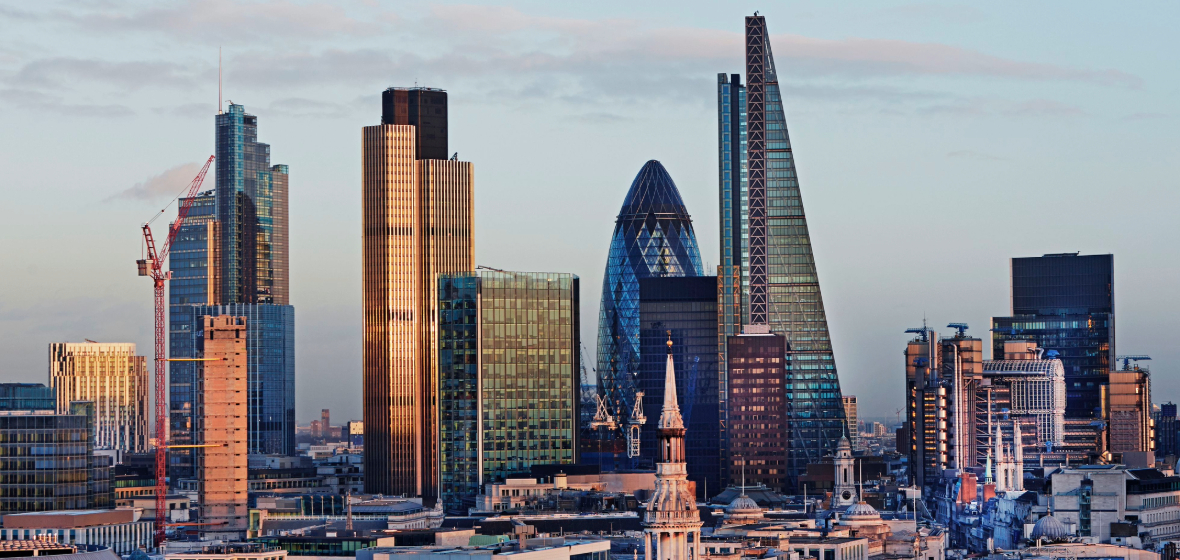When it comes to salaries, opportunities, and lifestyle, Australian lawyers have a wealth of choice between Sydney and London. This is especially true for Australian lawyers with over three years' post-qualified experience (PQE) in terms of competing with recent graduates in the UK. Reports on relative salaries indicate that in some cases, lawyers can earn triple their Sydney salary in London. That's an enticing prospect for those able to move, even as a short-term measure. But is it too good to be true? LSJ Online asked experts and those with lived experience of the two cities what the opportunities look like for Australian lawyers facing a career crossroads. Which sectors are covetable, how do salaries compare on paper, and in reality, does that salary go further in London or Sydney once rent, healthcare, entertainment, and expenses are considered?
According to Alex Gotch, Dubai-based director of recruitment agency Beacon Legal, there is no great difference in supply and demand between Sydney and London. Rather, UK firms have significantly higher charge out rates.
Beacon Legal’s London Salary and Market Report for private practice, released in July last year, referred to pay compression, or “salary bunching” in London. The result is that experienced lawyers receive only marginally higher pay than less experienced lawyers. That said, newly qualified lawyers have broadly been receiving a jump in rates (with some firms offering from £140,000 to £180,000), mid-level Associates from 2-5 PQE are earning a salary only a smidge higher than newly qualified (NQ) colleagues (a difference of £5,000 to £10,000). At top city firms, PQE levels 5-7 are earning between £115,000 to £170,000), while those in the Magic Circle can earn between £175,000 and £200,000.
Beacon Legal’s Salary and Market Report for Sydney, released in January this year, indicated that Australian qualified Finance, Corporate and Projects lawyers have been shifting to major legal jurisdictions (e.g. New York, London, Dubai, and Dublin). The benefit to high-quality candidates is that firms are offering salaries above typical post-admission experience (PAE) bandings, sign-on bonuses, increased performance-based bonuses (up to 50 per cent for over-utilisation) and the promise of international transfers.
Examples of salaries given by the report include:
2 PAE: $160K + 5K sign-on bonus – Top 8 Firm
3 PAE: $180K – International Firm
4 PAE: $190K – International Firm
SA1: $220K + 20K sign-on bonus – Top 8 Firm
SA2: $250K + 20K sign-on bonus – Top 8 Firm
SA3: $280K + 20K sign-on bonus – International Firm
Top-tier Sydney firms are offering counsel $300,000 as a base.
Cost of living in London is nearly double
According to the cost of living calculator Expatistan, London’s cost of living is 55 per cent more expensive than in Sydney. The site, specifically for expatriates, regularly updates its city comparisons based on hundreds of survey respondents and data on prices. In July, London and Sydney were on par in terms of food, clothing, personal care and entertainment, but London’s transport and housing costs were nearly double those of Sydney. A one-bedroom apartment in London’s CBD is estimated to rent for at least £1,799 ($3,736) per month, with Chelsea and Kensington median prices closer to A$4,983. Sydney’s median cost is approximately $3,120 (Real Estate).
“The wages are low in the UK compared to the cost of living, so I considered being a paralegal … (but it) … wouldn’t have been sustainable.”
A takeaway coffee in Sydney might cost between $4.50 to $7, whereas the same item is between $10 and $11 in London. Still, Australian lawyers are generally paying less tax in London than in Sydney.
Sarah made the Sydney to London switch
Sarah Gore is a solicitor at Taylor Rose in London. She and her partner moved to London because they were eligible for the youth mobility visa, “and we wanted to live in another country before we settled down,” she says.
“The wages are low in the UK compared to the cost of living, so I considered being a paralegal or another unqualified legal position, however I was looking at £20-30K a year which wouldn’t have been sustainable for the kind of experience we wanted. This would be great as an 18-20 year old but we’re in our late 20s and wanted to be able to travel, but not in backpacking style.”
Gore didn’t have the same opportunities offered to lawyers who take up roles within international firms.
“If you work in a large commercial firm with UK ties, you can get a transfer and work as a foreign qualified lawyer, meaning you don’t need to qualify in the UK under their scheme. My experience is in criminal law and tort/personal injury work so this wasn’t available to me and I made the decision to qualify in the UK. It was a very long process, around 9 months start-to-finish, and cost around $4000. I had to travel to Melbourne to undertake 12 hours of testing, but thankfully I passed and was admitted.
Gore found the job-hunting process exhausting, and sometimes felt her experience was undervalued.
“As a foreign lawyer, I think they treated me as newly qualified. I had tried a couple of recruitment agencies but didn’t get a response. I applied for around 20 to 30 positions, tailoring each cover letter and resume specifically, for a range of positions in my areas from newly qualified to four years’ post. I only received two responses but ended up getting offered both of those positions.”
Nonetheless, a job in London also meant a leaner salary than she might have secured in Australia.
“I essentially took a $15,000 pay cut, so you need to be prepared for that. I’m definitely treated as somewhat newly qualified in terms of salary, but I also had to use salary as a bargaining tool to convince firms to give me a shot as a foreign lawyer. The standard resignation period in the UK is 2 to 3 months, which means their recruitment processes are quite slow.”
Gore translated her Sydney experience directly to her current role.
“I managed to land an amazing job doing actions against police in London – which is the same work I had done for three years in Sydney with O’Brien Criminal & Civil Solicitors. Tort and personal injury law is incredibly similar as in NSW, for obvious reasons, so it has been a smooth transition. I’ve really enjoyed also doing human rights work in the UK and seeing the workings of the legal sector in a space where they have a legally enforceable human rights bill.”
She reflects, “I think everyone has very different experiences of London. Personally, I really like it. There is always something happening, and the streets are always buzzing. The cost of living is high – electricity and rent are much more expensive [than Sydney], and as a renter you have to pay council tax. We were paying $600 a week for a modern apartment in the inner west of Sydney and now are paying about $800 a week for a quite old apartment. It’s also hard to keep up the Australian lifestyle of eating out regularly since it’s very expensive here. However, groceries are much more affordable and the lack of supermarket duopoly means you have more choice of grocery stores, and even the small stores are reasonably priced.”
The big bonus for Gore and her partner is travel.
“This week we’re in the South of France, which is just incredible. The opportunity for travel is endless when based in London and that is definitely a major perk of being based here.
Living in London has made us appreciate the relatively sheltered and easy lifestyle in Sydney. Things seem a little more difficult here at every turn, although that may just be the experience of moving away from home.”
London is a chapter, not the final destination
According to UK-based legal recruiter, Tyler Wren, Australian and New Zealand lawyers are increasingly seeing London as a chapter within their careers, maintaining their intention to garner experience and return to Sydney. In May, Tyler Wren consultant Vikki Cox advised that opportunities in Australia and New Zealand were especially strong in sectors such as infrastructure, renewable energy, technology, and ESG law, “driving demand for mid- to senior-level legal talent”.
She pointed to recent recruitment data that indicates “salaries for lawyers with London experience have reached new highs in Sydney, Melbourne, and Auckland. Firms are actively courting returnees, offering flexible working arrangements, signing bonuses, and fast-tracked promotions.”
Likewise, recruitment agency Major, Lindsay & Africa reports that demand for Corporate/M&A lawyers remains strong for Associate and Senior Associates, especially in Sydney. There’s been a spike in demand for banking & finance lawyers, “especially as local firms look to replace lawyers leaving Australia for London or New York based opportunities”.
Major, Lindsay & Africa also reports that the appetite for sponsoring Commonwealth qualified lawyers from abroad is low, but opportunities exist for top-tier UK qualified lawyers with 3-5 years transactional and large firm experience.
Perhaps the appeal of a well-made flat white coffee, sunny beaches, and an increasingly competitive Sydney salary will remind Australian lawyers “there’s no place like home”.




